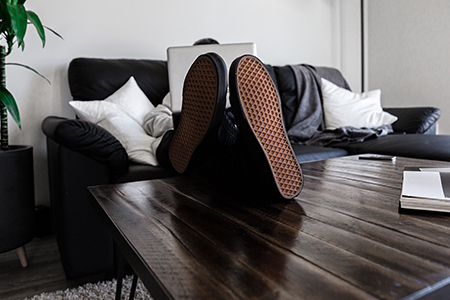Career insights with Ambition podcast
The podcast that dives deep into the defining moments of influential business leaders across technology, accounting and finance.

The podcast that dives deep into the defining moments of influential business leaders across technology, accounting and finance.

The podcast that dives deep into the defining moments of influential business leaders across technology, accounting and finance.

The podcast that dives deep into the defining moments of influential business leaders across technology, accounting and finance.


%20(2)%20(1).jpg)
Two of my interests and genuine passions for a while now have been recruitment and mental health, I find these two topics extremely interesting due to their tremendous impact on our day-to-day lives.
When I first thought about what I’d like to do when I finished school, I knew it had to be something that could have a positive impact on the lives of others, this is why I chose to study a Bachelor in Business (Human Resource Management) and a Bachelor of Behavioural Science (Psychology). Within my studies I learnt a countless number of important skills to assist me in my personal life and professional career, although one thing that always stood out to me and seemed to co-exist within both studies of business and psychology was the impact that one’s work life has on their mental health.
The consideration for our physical health during this pandemic has been at the forefront of everything we do, however, it is easy to let slip the consideration of our mental health when caught up with everything going on. With a lot of us now working from home we are no longer surrounded by our usual work environment, this could mean working alone, working without particular resources, and struggling with distinguishing work time and you time, as it all happens under the same roof.

Along with the countless benefits that come with working from home, there are also a number of risks and negatives to these arrangements, some of which become more evident as the potential novelty of it all wears off. Some of these to lookout for include:
Feelings of isolation, loneliness, and disconnection – both socially and professionally
Struggling with switching on before work or switching off after work
Difficulty in staying motivated, organised, and prioritising
Trouble in managing your own performance and progress
Although we might not notice it at first, these feelings and struggles can creep up on us and begin to deteriorate our overall mental wellbeing over time.
In order to mitigate the risk of harm to your mental health, there are a number of things that can be done on a daily basis to assist in staying positive, motivated, and social. These include:
Talk, Talk, and TalkI personally hadn't realised how much I like to talk (although others probably have, sorry about that) but now being at home in a workspace by myself, I’ve missed the chit chat with colleagues in the office. In order to substitute the face to face interactions, I have been harnessing the wonderful world of technology to stay social, including Zoom for VC’s, Teams for group chats, and morning & afternoon virtual meetings. By doing this it means I’m constantly engaged and talking to people, meaning that working alone doesn’t turn into being lonely. This also gives you a chance to express any concerns or struggles you might be experiencing and seeing how others are dealing with it. | |
Try and stick to a routine/structureJust like when you are in the office, it’s important to plan out your day so that you complete what needs to be done and can set a structure to stay on top of things. This should also include guides as to when you start and finish working so that you can identify work time and home time which will set boundaries to prevent the crossover between the two. This gives you a way to switch on to work when needed and switch off for home time as required. | |
Take regular breaksIt is important that you break up your day with regular breaks to make sure that you aren’t overworking, straining yourself mentally, or becoming drained. Regular breaks throughout the day help you to build intervals where your work can be as productive as possible whilst still ensuring you are looking after yourself as best as possible. It is important to figure out what works for you, some people like to be strict with 50-minutes working and then a 10-minute break, although others mix it up throughout the day depending on their rhythm and schedule. What is essential here is that you are ensuring your time working is as efficient and effective as possible whilst giving yourself time to rest both physically and mentally. | |
Exercise the body and mindGet the body moving and the mind ticking, stay active, and don’t become dormant or simply go through the motions. When WFH and being in the house all day, it is a lot easier to slack off than it is when you are in the office, so you need to stay aware of how you can keep your body moving to stay healthy physically and keep your mind active to keep the endorphins flowing. Why not use some of your breaks during the day to watch some in-house workout routines or set-up a Zoom group workout (shout out to Jess Minter) and take some time to read a book or complete some brain training activities! | |
Take some YOU timemake sure you have time to relax, reflect, refresh, and reset. Learn something new, maybe learn to meditate, learn a new language, or take some online courses. With some extra time freed up from not having to travel to and from work, why not make the most of that by talking to family/friends, picking up some household chores that you have been putting off, or even getting some extra sleep! Most importantly, take time to identify how you are feeling and how you are reacting to the climate around you, this way you can notice in changes in your mood, feelings, or thoughts that might pose a risk to your mental wellbeing. |
At the end of the day, we can’t deny that WFH provides an opportunity to work in a way that is more flexible and tailored to you. But with this flexibility also comes accountability and responsibility, so it is important that you work in a way that maximises your efficiency and productivity to perform at your best. Whilst doing so, it is imperative that you look after yourself physically and mentally so that you aren’t at risk of damaging your mental wellbeing. If you are struggling with managing your mental wellbeing or you suspect that somebody might be and not sure how to approach it, please reach out to any of the below contacts. Speaking up can save lives.
|